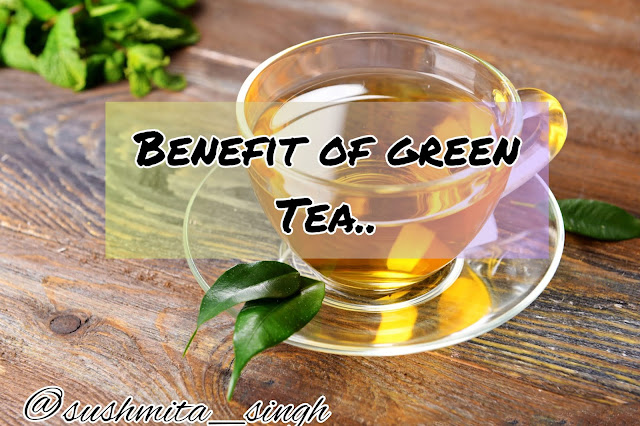I just love it when something so simple can be implemented as part of your daily routine and it has the potential to create so many positive benefits for your health and well-being. Green tea has been consumed as a beverage and used as medicine for thousands of years and today I want to share with you what modern research has been revealing about green tea.
Use of a green Tea
- Now orally green tea is used to improve cognitive performance and mental alertness.
- It's also used to treat stomach disorders,vomiting, diarrhea and headaches.
- It's used for depression, nonalcoholic fatty liver disease, all sorts of colitis, weight loss, osteoporosis, several different types of cancer.
- It's an antiviral for human papilloma virus and warts, crohn disease, Parkinson's disease, cardiovascular disease, both high and low blood pressure, diabetes, lupus, chronicfatigue syndrome, dental cavities, kidney stones, and skin damage.
- Gargling with green tea has been used for the prevention of colds and flu.
Green tea is different than black tea because it's not fermented. Black tea is fully fermented.
Green tea is produced by steaming fresh tea leaves at high temperatures. This process inactivates certain oxidizing enzymes, freeing the polyphenols and the flavonoids. Flavonoids include EGCG, EGC, ECG and EC and they're referred to as catechins. They're also protective for liver health. These seem to be responsible for many of the proposed benefits of it. EGCG makes up about 50 to 60% of green tea catechins. The flavonoids in green tea include kaempferol,quercetin and others. Green tea also contains vital estrogens including beta-sitostero and lignum precursors, as well as xanthines.Green tea also contains about 2% to 4% caffeine or 80 to 100 milligrams per cup. Another constituent of green tea is an important amino acid called L-Phenylalanine.
Let's talk about some of the specific conditions that green tea has been studied for. Arthritis, those catechins in green tea might help reduce inflammation and protect against cartilage damage, Cancer. Many different types of cancer have been studied and shown that the antioxidant, anti inflammatory catechins and polyphenols can be protective against the development of certain types of cancers. It's not a treatment, but it helps to reduce risk factors because of those antioxidants and polyphenol. Next, it's an anticoagulant, So there's some evidence that green tea is suppressive for thromboxane and the development of a platelet aggregation and that of course is helpful for reducing risk factors for cardiovascular disease.
We know that green tea is a powerful antiinflammatory food or beverage. The catechins in green tea might have some pretty substantial anti inflammatory activity. In fact, green tea is used as a laboratory standard for Cox-1 Inhibition, which is anti-inflammatory. It helps to reduce low density lipo proteins and low density cholesterol. It may improve and increase good cholesterol HDL. The antioxidant effects of green tea and its constituent catechins are thought to explain some of its clinical effects, especially related to anti inflammatory and anti cancer, help to protective or liver protective and cardiovascular health. In human research, green tea and it's catechins have been shown to protect against the oxidative damage caused by exercise and smoking, as well as just general oxidative damage. We know that the polyphenol, flavonoids and the catechins are antiviral. They have the potential for human papilloma virus and the virus that causes warts on the skin to be inhibitory towards those viruses.
Blood pressure and cardiovascular disease. Some research suggests that drinking green tea reduces the risk of developing high blood pressure. Also, some clinical research suggests that taking green tea extract reduces blood pressure in patients, either with or without high blood pressure.We know it's important for cognitive health. Green tea contains 2 to 4% caffeine or roughly 80 to 100 milligrams per cup. Possible mechanisms for helping with memory lapses and cognitive decline and cognitive health include adenosine receptor block ade and phosphor diesterase inhibition.
Dermatologically or on the skin. Some evidence suggests that oral and topical application of products containing green tea may improve skin elasticity, hydration, skin roughness, i.e. Anti-aging. We know that green tea is important for immune health. It helps to stimulate the immune system. There's some evidence from clinical research that taking green tea formulations reduces the risk of developing clinical cold or flu like symptoms.
Finally, it's been used for weight loss. Green tea is commonly used for weight loss. Evidence from clinical trials are mixed, although some studies do show that weight loss, with specific products, can occur from taking green tea.
I want to know that you're viewing from all over the world. I want to hear your experience about green tea. If you love it, if you love the flavor of it and you can get effects by drinking, brewing, steeping, and consuming two to four cups of green tea a day. I love that you guys are reading my posts. I'm honored and impressed with your time and attention to learn about your health and wellness. I will share some other more about blood pressure, anti-inflammation, and cardiovascular disease. I
Green Tea is not a myth, it's real. It's been around for thousands of years and modern research is telling us why it can be so useful for your health. I have a Facebook page, Instagram posts. I encourage you to check those out. My name is Sushmita Singh , and again, I love it when something so simple can make a huge impact on your health and well-being . Thank you so much..



Green Tea with 6 🍌 bananas every morning will keep you healthy fit, HE MAN🏋️🏇🌻
ReplyDelete